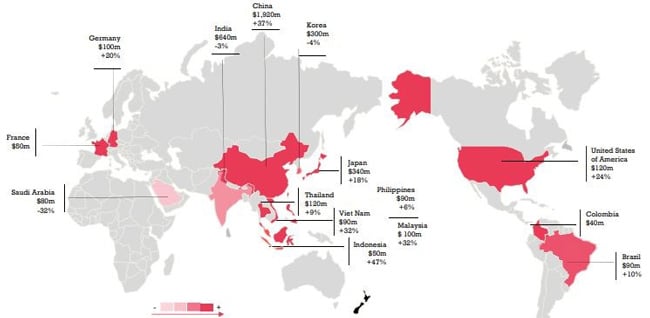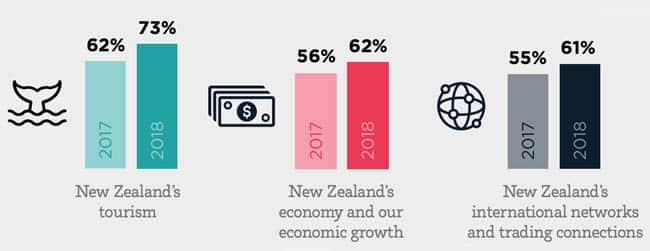Education now New Zealand’s fourth-largest export sector
New figures from Education New Zealand (ENZ) reveal that export revenues for the country’s international education sector continued to grow strongly through 2017. ENZ reports total sector exports of NZ$5.1 billion (US$3.5 billion) for the calendar year, NZ$4.8 billion of which was attributed to spending by onshore students visiting New Zealand with another NZ$.3 billion tied to education goods and services delivered abroad. This represents a very impressive near-doubling in the total value of the country’s international education sector between 2014 and 2017. This means as well that education is now New Zealand’s fourth-largest export sector, and supports just under 50,000 jobs nationwide. By education sector, universities continue to account for the largest share of total exports (27.6% or NZ$1.41 billion in 2017). This is almost exactly the same proportion of export revenues booked by the sector in 2015/16 (27.2%). Private training establishments (PTEs), meanwhile, saw their share of exports fall off over the last year, from 27.2% in 2015/16 to 21.4% in 2017 – a change that can be largely attributed to the declining Indian enrolments reported by PTE providers over the two years. All other sectors – English language training (15% of exports in 2017), institutes of technology (13.1%), and schools (16.9%) – are holding steady within one or two percentage points in terms of their share of export revenue last year as compared to 2015/16. That dip in PTE enrolments last year led to an overall decrease in foreign student numbers for 2017 but, as an accompanying commentary from ENZ points out, this decline has not blunted the sector’s economic impact. “The strong economic results are underpinned by a deliberate shift in focus at Government level from ‘volume to value’, that is increasing the value to New Zealand from fewer students studying in New Zealand and increasing the value of the international education sector in all regions of the country and offering an excellent student experience.”
Growth markets
The following illustration highlights the most significant growth markets for New Zealand educators over 2016 and 2017. Perhaps not surprisingly, the fastest-growing markets are all found in Asia: China, Vietnam, and Indonesia. In contrast, India and Saudi Arabia were the notable declining markets last year but India nevertheless remains the second-leading market (after China) in terms of export value.

Taking the pulse
Also released by ENZ earlier this month were findings from a recent public opinion poll. The 2018 “Understanding New Zealanders’ perceptions of international education” survey finds growing support for the sector and a “wide recognition among New Zealanders of the social, cultural and economic benefits that international education brings to New Zealand.”

















